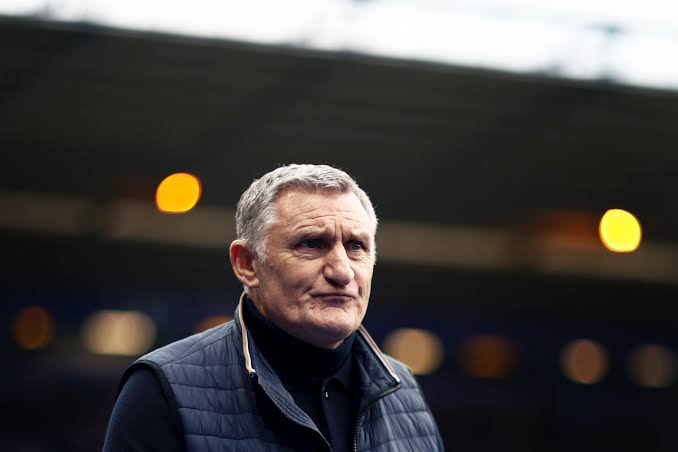Former Sunderland head coach Tony Mowbray has once again reflected on his time at the club, sharing his thoughts on his departure and his impressions after meeting current head coach Régis Le Bris.
Mowbray, who previously managed Middlesbrough, Celtic, and West Brom, took over at Sunderland during their first season back in the Championship, following Alex Neil’s departure. Under his guidance, the Black Cats achieved a top-six finish and reached the play-offs, only to be eliminated by eventual promotion-winners Luton Town in the semi-finals.
Despite speculation about Sunderland considering other managerial options, Mowbray stayed on for the following season. However, he was dismissed after 15 months in charge, with Sunderland sitting ninth in the Championship.
After leaving Sunderland, Mowbray took over at Birmingham City but stepped down following a bowel cancer diagnosis. Now recovering, he has made several public appearances, including one at the Stadium of Light earlier this season, where he met Le Bris.
Reflecting on his exit, Mowbray told Bernie Slaven:
“It came as a surprise to me. Things had become a little strained. It’s an amazing club with amazing supporters who’ve been very good to me. Considering my history with Middlesbrough, Sunderland fans were very supportive and enjoyed the football we played. I don’t think my departure was down to results—we were seventh at the time, on the same points we had the previous year when we made the play-offs.”
Mowbray also praised Le Bris, describing him as calm and empathetic:
“I met Régis, and he struck me as a steady, calming presence—something the young, talented players at Sunderland need.”
Discussing his relationship with Sunderland’s ownership and management structure, Mowbray noted the challenges of modern football. He explained how the club’s model, led by owner Kyril Louis-Dreyfus and sporting director Kristjaan Speakman, emphasized data-driven decisions and the development of young players, often clashing with his approach of selecting teams based on performance and readiness.
“The club wanted me to give more opportunities to the young players they brought in, but I only picked players based on what I saw in training and their ability to do the job. My focus was always on winning for the fans, but the ownership model prioritized giving young players a chance, even if they weren’t ready. This created tension. I’d often be questioned about team selections and called into meetings to justify why certain players weren’t starting.”
Mowbray acknowledged the shift in modern football management, with data and recruitment playing a more significant role. While he expressed willingness to adapt, he emphasized his commitment to fairness and performance when making decisions:
“Ultimately, I felt the club believed my team selections weren’t fair. But I’ve always trusted my judgment based on what I see every day in training and the effort players put in.”
